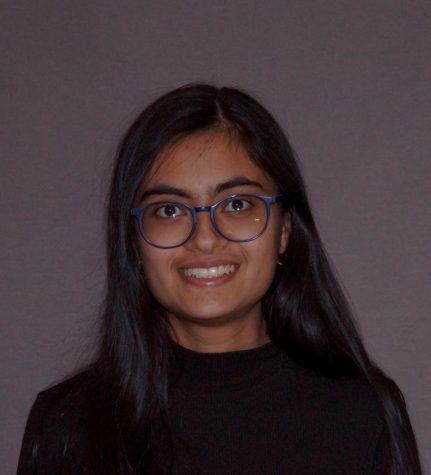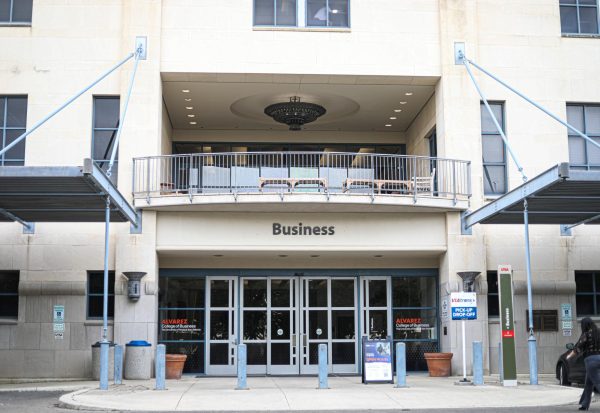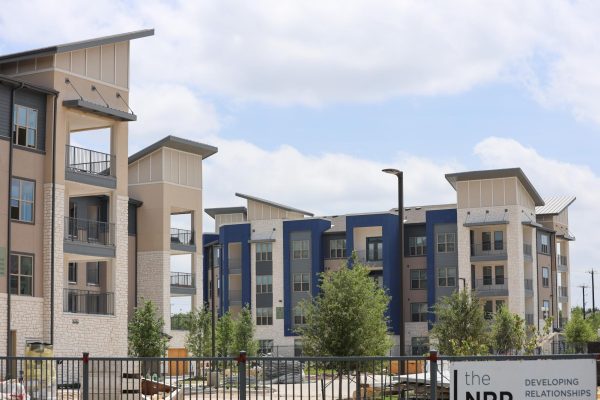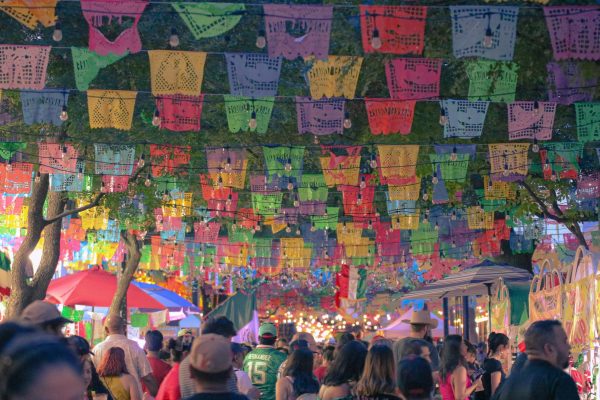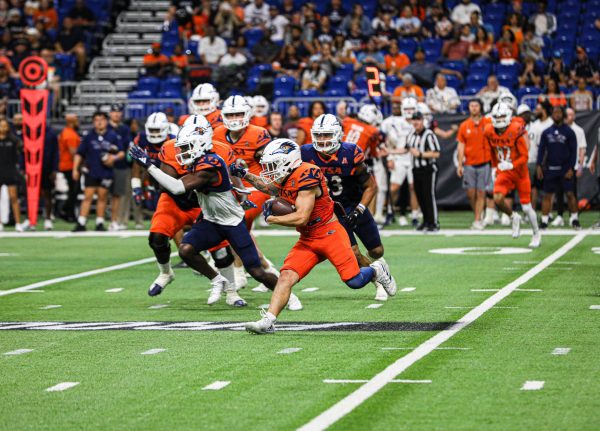Ongoing research leads to a promising development in preclinical drug treatment for COVID-19
September 2, 2021
Doug Frantz is a UTSA Max and Minnie Tomerlin Voelcker Distinguished Chair at UTSA’s Department of Chemistry. Aside from his teaching activities, Frantz is also involved in multiple research projects based here in San Antonio. The most notable of these projects is his ongoing work on developing a preclinical treatment to tackle SARS-Cov-2 – the virus behind the COVID-19 pandemic.
Back in 2020, when the pandemic was at its height, Frantz along Dr. Matt Hart from the Department of Biochemistry at UT Health San Antonio and Dr. Jonathan Bohmann at Southwest Research Institute proposed an interesting alternative approach that would block SARS-Cov-2 from entering the cell. This approach, which led to the team receiving a grant from the San Antonio Medical Foundation, was a three-step process with the end goal of having a preclinical treatment. What Frantz and his team proposed was the combination of artificial intelligence and medicinal chemistry to identify, validate and eventually molecules that are capable of RS-Cov-2.
Since last year, the group has been able to use computer modelling to identify potential molecules with the work of Dr. Jonathan Bohmann at Southwest Research Institute. They have also been able to validate the molecules with the work of Dr. Matt Hart at UT Health San Antonio who designed “biological screens” to validate these molecules. Currently, Frantz’s team at UTSA is in the process of turning the identified molecules into actual preclinical treatments for COVID-19.
According to Frantz, the team has “enough preliminary data…to actually go to the NIH and apply for a much much larger grant from the NIH…[to] really start to translate these discoveries and…[produce] a preclinical candidate that…would have huge potential to treat COVID-19.”
“It’s been a crazy, fruitful…collaboration… [that has] ironically been interrupted many times by Covid,” Frantz said about the project. He further emphasised that despite all the developments, the research process has not been an easy one. “It is a very brave new world these days in trying to do research with these interruptions,” he added, explaining how it has been hard not just in terms of personnel but also obtaining basic research materials like chemicals and other supplies.
However, despite the challenging process, Frantz was quick to express his satisfaction with working on such a transformative project. “It’s been a struggle but I am so impressed with the team here locally in San Antonio…[that made]…this massive progress,” he said. He further explained that the project has been a source of both scientific and personal satisfaction to him.
“There’s the…scientific satisfaction…of being able to…utilize the experiences I’ve had throughout my career…so scientifically it’s been rewarding…and…challenging…[and] on the personal side of things…I feel like I [can]…get up every day, every morning and come to our lab here at UTSA knowing that…the data that we’re getting that day could be…transformative…in our ability to rapidly come up with a new treatment for COVID-19,” Frantz said.
Frantz further talked about the importance of developing a potential drug to treat COVID-19, explaining that while vaccines are a miracle, “no vaccine is perfect.”
“I think it’s this complimentary approach of having vaccines…with drugs that are there not only…available at the hospital…but I think ultimately what…places like the NIH would like to see is to have oral drugs that are available in everybody’s medicine cabinet…that makes it much easier for people to comply for treatments [and] we don’t have to worry about overburdening our hospitals…ultimately, I think that’s where we need to be,” Frantz explained. He also pointed out the similarity this two-pronged approach has with the current system in place to tackle Influenza, which includes both a flu shot as well as drugs like Tamiflu.
“This combination therapy approach…with vaccines and drugs is…what we need to address especially viruses of pandemic concern. There’s no doubt in my mind,” Frantz said, adding that the development of the vaccine “bolstered [his] commitment to doing [the research].”
Frantz’s research concerning a potential preclinical treatment for COVID-19 is among one of the many research efforts that have been ongoing in San Antonio. These efforts and initiatives have been propelled by the community of scientists in the San Antonio area as well as projects like the CIDD (Center for Innovative Drug Discovery), which Frantz helped co-found about ten years ago. Projects like these have helped accelerate the process of drug discovery in terms of screening molecules for specific purposes or making sure drugs that are being developed are safe.
Frantz further talked about the impact of organisations like the San Antonio Medical Foundation, explaining how their funding of Covid related projects has “started to spurn…a much broader base here for people that are interested in anti-viral drug discovery.” Frantz also acknowledged the role of the Max and Minnie Tomerlin Voelcker Fund, which has provided support in building a “ecosystem” surrounding drug discovery research here in San Antonio.
“A lot of the institutions including…UTSA, UT Health, Texas Biomedical Research Institute, Southwest Research Institute…we’re all coming together to actually build larger teams and larger…approaches to actually tackle not only COVID-19, but again to be prepared for the next pandemic when it happens,” Frantz said. “I think…moving forward I see San Antonio becoming a leader…in anti-viral drug discovery,” he added.
“The one thing I do love about San Antonio…is that this is truly a community…that is easy to collaborate with…[and] easy to stimulate new ideas…there’s not large egos that get in the way…just the sheer ability to bring somebody to the table and sit down and talk about things…especially so rapidly,” Frantz said, explaining how the scientific community in San Antonio immediately got together to unite in the face of a pandemic.
“I just want everybody at UTSA to understand the impact…of what is going on here,” he said, explaining that a lot of the research activities are driven by students.
“I’m just lucky to be a part of it,” Frantz concluded.

